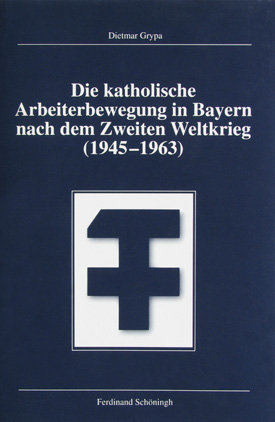Grypa, Dietmar: Die katholische Arbeiterbewegung in Bayern nach dem Zweiten Weltkrieg (1945–1963)

Using the example of the Katholisches Werkvolk, the South German association of Catholic workers, this study demonstrates the importance of Catholics as a social and political force operating between Church, society, and politics during the Adenauer era. The author examines the institutions that organized Catholic workers in Bavaria after World War II in order to deepen their faith and improve their economic, social, and cultural situation.
Based on broad sources – and first-time utilization of the relevant holdings of 20 different archives – Grypa paints a differentiated picture of associational Catholicism. The author describes not only novel internal reforms, such as attempts to organize men and women together within a single association, but also investigates the Catholic labor movement's multifarious relations to the Church hierarchy, to western German associational Catholicism, and to unions and political parties. In doing so, he presents convincing evidence that Catholicism in the young Federal Republic was anything but homogenous, that considerable differences existed between southern and western Germany.
To order our publications, please, contact your local bookshop or the publishing house Schöningh in Paderborn.
